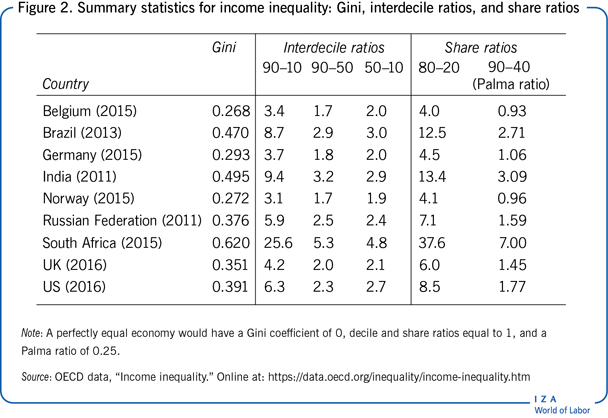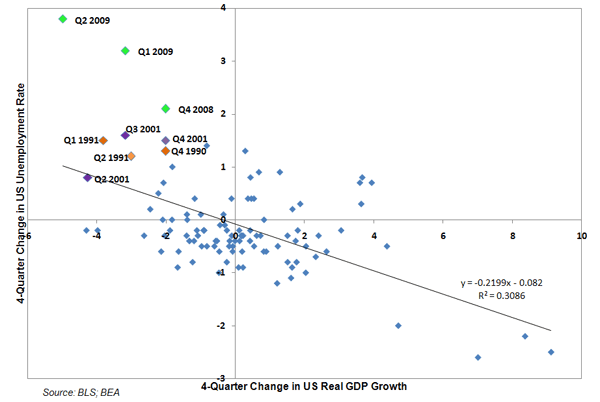Contents
- Trending Stocks
- Nykaa soars 11% after board approves 5:1 bonus share
- How do our sites use Cookies and Other Tracking Technologies?
- Elon Musk tweets Twitter offered 3-month severance but Indian staff got a 2-month deal
- Corporate Radar: Aarti Industries, Bharat Dynamics to trade ex-dividend, GKP Printing bonus issue and more
However, in the past six months, Nykaa has underperformed the market falling up to 20 per cent, as against an 8 per cent rally in the Sensex. Kindly update you email ID with us to receive contract notes / various contract notes electronically to avoid any further inconvenience. The eligibility of any corporate action depends on the Record date and Ex-date of the scrip. If you require any information or clarification regarding the use of your personal information or this privacy policy or grievances with respect to use of your personal information, please email us at Kindly update your email id with us to receive contract notes/various statements electronically to avoid any further inconvenience.
They may try to sell the additional shares to meet liquidity needs, which would lower their percentage in the company. The bonus shares will be credited to the shareholder’s account within 15 days of time. Shareholders must purchase shares before the ex-date because if they purchase on the ex-date, the company will not give the ownership of shares, and therefore, they will not be eligible to receive bonus shares. Shareholders who own the company’s shares before the ex-date and record date are eligible to receive bonus shares from the company.

As a business we do not give stock tips and have not authorized anyone to trade on behalf of others. Please write the Bank account number and sign the IPO application form to authorize your bank to make payment in case of allotment. In case of non-allotment, the funds will remain in your bank account. All the existing shareholders of the company, at the time of the bonus issue, are eligible to receive bonus shares. Once the company announces a bonus issue, it also announces the date when the issue will take place.
Trending Stocks
● Bonus shares help the company sail out of the situation of sharing cash dividends with the shareholders. A share or stock trades ex-date usually a business day before the record date. Accordingly, Nykaa bonus ex-date would be a trading session prior to the record date which is November 11. Nykaa shares ex-date would be November 10 , meaning the stocks of the beauty brand would trade ex-bonus date just a day before the record date. 4) Bonus shares contribute to an investor’s trust in the firm’s business and operations by allowing the investor to participate in the company and receive capital in return.
All the investors who are the shareholders of the company on the Record date will be issued bonus shares. Between issue announcement date and the record date, these bonus shares are known as cum-bonus. Once the bonus shares have been issued on the record date, they are known as ex-bonus. In India, the delivery of shares into a Demat account takes place after 2 days from the trading date. All existing shareholders before the ex-date and record date are eligible to receive bonus shares issued by a company. However, to qualify to receive bonus shares, the company stocks must be bought before the ex-date.
Such shares are generally held with Stock broker in his pool account. What to do if broker refuse to give bonus and just stick on record date. Anupam Rasayan will also hold a board meeting to approve the meeting of the fundraising committee for considering and determining the issue price of equity shares to be issued under the QIP. Bonus shares issue benefits companies as they can come out of situations in which they are not able to pay cash dividends to shareholders. Since Indian exchanges follow a T+2 settlement process for delivery of shares, it takes two days for the shares to reflect in your account. Hence, to qualify for bonus shares you must buy shares before the ex-date.

EPS is calculated by dividing the company’s net profit by the number of outstanding shares. A reduced EPS due to a bonus share issue is, however, compensated in the long-run by a corresponding increase in the number of outstanding shares. 7.Paid-up shares – Only fully paid-up bonus shares can be issued to the shareholders to protect them from the liability of amount that is uncalled on unpaid-up shares. 1.Articles of Association – A company can issue bonus shares if there is a provision for the same in the Articles of Association . In the absence of the provision, a special resolution can be passed at the company’s General Meeting to amend the Articles of Association and include the provision to issue bonus shares. Additional shares reduce income per share, which might disappoint investors, making the stocks less attractive.
Bonus shares can form an excellent reward for long-term shareholders. But one has to purchase the company’s shares within the ex-date to be eligible for the same. Though companies keep a window of 15 days to credit the bonus shares to your account, they arrive much sooner most times. When the company announces a partially paid bonus, the remaining amount of shares gets fulfilled.
To receive the bonus shares of Nykaa, one must purchase the shares at least one business day ahead of ex-date. The above mentioned are the conditions that a company must fulfil to issue bonus shares. To be eligible for the different types of bonus shares you must hold the shares of the company in the demat account. If you want to open a demat account, you can consider Kotak Securities.
Nykaa soars 11% after board approves 5:1 bonus share
The bonus shares are first issued under a non-permanent or temporary ISIN. Moving from temporary ISIN to permanent ISIN involves 4-5 business days. Once it is converted to a permanent ISIN number, the bonus shares are eligible for trading. The partially paid bonus shares apply to the partially paid shares. These are the shares the shareholders partially paid at issuance.
- India follows the T+2 rolling system for the delivery of shares, wherein the ex-date is two days ahead of the record date.
- Investors don’t need to pay taxes while receiving bonus shares from the company.
- If the company has availed of loans, permission is required from the particular financial institution before issuing bonus shares.
- The board has fixed November 3, 2022, as the record date for determining investors’ eligibility for the bonus shares.
- As per the rules, a company can only make a bonus issue from the company’s free reserves, and the total share capital cannot be more than the authorised share capital.
- During this period the shares are in process of being credited and will be in effect only after they are credited.
Every investor who is looking to fetch bonus shares from an issue must understand the tax implications of the same. As per the Income Tax Act, 1961, there are no tax implications on a bonus issue from a shareholder’s perspective. This means that an investor does not have to pay taxes for receiving https://1investing.in/ bonus shares. However, with regards to the gains, if any, generated from trading of the additional shares are called capital gains and are taxed accordingly. After announcing a bonus issue, a company simultaneously announces the date of the issuance of bonus shares, known as the record date.
How do our sites use Cookies and Other Tracking Technologies?
Elearnmarkets is a complete financial market portal where the market experts have taken the onus to spread financial education. ELM constantly experiments with new education methodologies eligibility for bonus shares and technologies to make financial education effective, affordable and accessible to all. Receive OTP directly from depository on your e-mail and/or mobile number to create pledge.
Companies issue bonus shares to encourage retail participation and increase their equity base. When the price per share of a company is high, it becomes difficult for new investors to buy shares of that particular company. An increase in the number of shares reduces the price per share. But the overall capital remains the same even if bonus shares are declared. 1) The issuance of bonus shares boosts the company’s worth and improves its market position and image, earning the trust of existing shareholders and attracting a number of small investors to thestock market.

T+2 settlement cycle runs in India, and that imply the ex-date is one day before the record date. The main benefit of a stock split is that the shares of a company generally see increased liquidity. Since shares have now become more accessible to retail investors, more people would show increased demand for them, which can increase liquidity on the counter. Therefore, buying and selling shares will be easier after a stock split.
Elon Musk tweets Twitter offered 3-month severance but Indian staff got a 2-month deal
GAIL has periodically rewarded shareholders with four such announcements this year itself. In March this year, the company announced an interim dividend of Rs 5, followed by a share buyback announcement, which it carried out at Rs 190- per share. In August this year, the company also declared a final dividend of Re.1 along with the announcement of the bonus issue. Bonus shares upgrade the company’s worth and build positions, hype, and reputation in the market, acquiring the trust of existing investors and drawing the attention of more investors towards itself. It is a share in a company that is partially paid as compared to the full issue price, which means an investor can buy partial shares without paying the total issue price and the rest can be paid in installments.
A bonus issue strengthens a company’s equity base and also increases the retail participation in the company’s shares. Thus, the bonus issue is a win-win for both companies and investors. Listed companies issue bonus shares from their free reserves and surplus. And from this capital, bonus equity shares are issued and allotted to eligible investors.
Corporate Radar: Aarti Industries, Bharat Dynamics to trade ex-dividend, GKP Printing bonus issue and more
There are a few important dates while issuing bonus shares that you must know. This is something similar to important dates while a company issues dividends. Investors having lower capital can buy those company shares in large quantity.
According to the relevant provisions of the Income Tax Act, 1961, there are no tax implications on a bonus issue for shareholders in a particular financial year. This means that you don’t have to pay taxes for receiving the bonus shares. However, the gains made by trading in the additional shares are categorised as capital gains and taxed accordingly. The record date is the cut–off date announced by companies to decide who is eligible to receive bonus shares. The announcement of this cut-off date becomes necessary because listed company shares are continuously traded in the secondary market, causing a frequent change in shareholders. Only those who make it to the company’s shareholders list on record date become eligible for bonus shares.